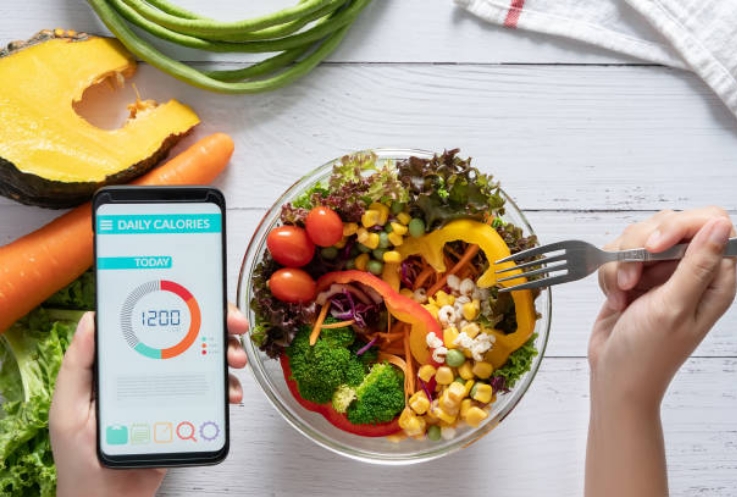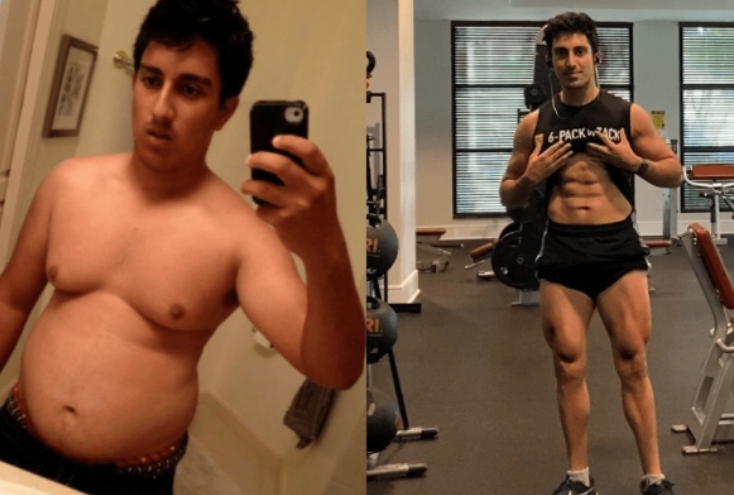The best strategy for losing weight: a beginners guide

Intuitive Eating
Many people struggle with following a formal diet and thus are unable to get the results they want. Fortunately, there is an alternative – Intuitive Eating.
What is intuitive eating?
- Intuitive eating is an adaptive behavioral pattern associated with boosts in mental and physical health, lowers risks of obesity, and overall a better relationship with food. [1]
- Alternatively, it can be defined as a reliance on physiological hunger and satiety cues to guide eating. It has been proposed as a healthy weight management strategy.[2]
- In simple terms, intuitive eating means eating when you are hungry and stopping when you are satisfied as opposed to stuffed.
Why should you eat intuitively instead of following a strict diet plan?
- Studies show that following an intuitive eating approach instead of weighing out every food item, counting every calorie is more beneficial to weight loss and definitively more realistic.[3]
- Leads to mental health benefits and decreases the risk of developing an eating disorder[4]
- This method allows flexibility in terms of diet and food intake. Ultimately, since you are waiting until the hunger signal kicks in and eating only until satisfied, the net result is likely to be a caloric deficit leading to losing body fat.
- It is sustainable and can become a way of life. Most diets are very restrictive and are difficult to reverse into a maintenance phase. Thus, many people lose weight only to regain it right after going off the diet. Intuitive eating can be applied for life, offering a healthy and manageable method of weight control
How to eat intuitively
- Eat slower and drink more water. The stretch receptors in your stomach signal the brain via the vagus nerve with hormonal signals such as cholecystokinin and leptin.
- Avoid environmental cues that stimulate hunger such as smells and sights of good-looking food
- Check your hormone levels with a doctor to see if you are leptin resistant or have other challenges that can be medically addressed[5]
Summary
Intuitive eating offers dieters a more flexible and achievable plan for eating. It allows you to fill your macros with foods you like without overeating. This behavioral pattern is backed by medical research as an effective way of dieting. Achieving this method simply requires you to eat slower and allow your body to naturally let you know when you are full. Some discipline is still required, and personal hormonal issues may create challenges. Overall, it is a great alternative to restrictive unsustainable diets.
References
[1]https://www.intuitiveeating.org/resources/studies/
[2] Linardon J, Mitchell S. (2017). Rigid dietary control, flexible dietary control, and intuitive eating: Evidence for their differential relationship to disordered eating and body image concerns. Eat Behav. 26:16-22.
[3] Linardon J, Mitchell S. (2017). Rigid dietary control, flexible dietary control, and intuitive eating: Evidence for their differential relationship to disordered eating and body image concerns. Eat Behav. 26:16-22.
[4]Eating and Weight Disorders ? Studies on Anorexia, Bulimia and Obesity. doi:10.1007/s40519-018-0562-6
[5]https://www.health.harvard.edu/blog/why-eating-slowly-may-help-you-feel-full-faster-20101019605




